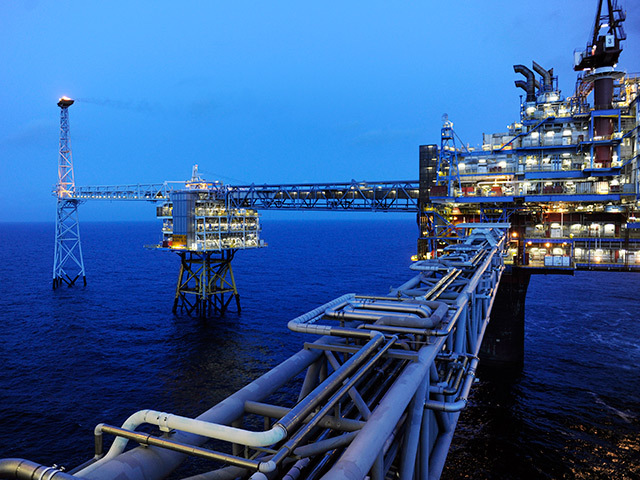
The Norwegian government has stepped in to end industrial action by offshore workers which threatened to shut in almost 60% of the country’s gas exports.
Members of the Norwegian Organisation of Managers and Executives (Lederne) trade union went on strike from shortly before midnight on Tuesday, demanding an increase in wages to make up for rising inflation.
Workers were poised to begin further action through the week which threatened over 1.1 million barrels of oil equivalent – around 56% – of gas exports from the Norwegian continental shelf (NCS), according to the Norwegian Oil and Gas Association (NOGA).
However, representatives from both oil companies and unions were called in by labour minister Marte Mjøs Persen late on Tuesday, who used government powers to end to the disruption – a move that has “protected” the North Sea’s reputation, according to some analysts.
“When the conflict can have such great social consequences for the whole of Europe, I have no choice but to intervene in the conflict,” Persen said in a statement.
“It is unjustifiable to let gas production stop to such an extent.”
Lederne leader Audun Ingvartsen confirmed to Reuters that workers would be “going back to work as soon as possible”.
The dispute will now move to compulsory arbitration, to be settled by the country’s National Pay Board.
“We’re pleased that the government understands the seriousness of the position and is acting to maintain Norway’s good reputation as a reliable and stable supplier of natural gas to Europe,” said NOGA director of organisation and employer policy Elisabeth Brattebø Fenne.
The intervention averts a potentially disastrous course for countries reliant on Norwegian gas supplies, including the UK.
Transmission system operator Gassco had warned on Tuesday that escalating action could see supplies to the UK and Belgium cut off by the weekend due to action at Sleipner, a key transmission hub.
In 2021 the UK consumed 76 billion cubic metres (bcm) of gas, of which 32bcm were Norwegian and 29bcm were from the UK continental shelf, according to Ross Dornan, market intelligence manager at Offshore Energies UK (OEUK).
He added: “The UK’s own offshore gas fields give us vital protection against shortages. Without those resources we would be at risk of gas rationing and even power cuts within days.
“So this strike in Norway is not just a threat. It’s also a very timely warning of the danger of not investing in our own energy supplies.”
‘Triple whammy’ averted
In a note on Wednesday Rystad analyst Lu Ming Pang said that Dutch TTF prices had “calmed” to $46.74 per million British thermal units (MMBtu) on 6 July, as compared to $53.66 per MMBtu on 5 July when the strike started – a 10% spike on the previous day.
“Had the situation not be resolved, the TTF would have been sent back close to, or even exceeding, its all-time high of $65 per MMBtu, reached in March,” Mr Lu said.
The loss of gas supply from Norwegian fields would have been a “triple whammy” for Europe, Rystad said, coming just weeks of losing Russian flows and supplies from Freeport LNG in the US.
It would have also resulted in surging power prices in Europe and southern parts of Norway linked to EU and German power networks.
“Given the swift and timely response by the Norwegian government, the message is clear that there should not be any doubts on the security of Norwegian gas supplies, and that now more than ever, the EU and allies must stay united to avert any future challenges that may come their way,” he continued.
“The government’s decision has protected the North Sea’s reputation as one of the most stable oil and gas investment locations globally.”
Recommended for you
